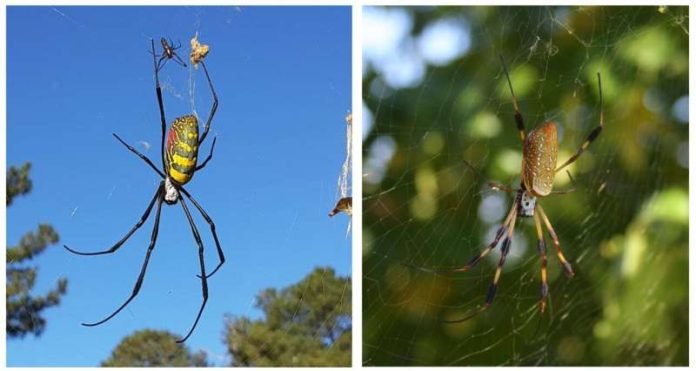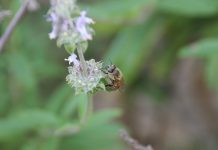
Contrary to their intimidating appearance, the giant yellow and blue-black Joro spiders spreading across the Southeastern U.S. are surprisingly timid.
A new study from the University of Georgia suggests that these spiders may be the shyest ever documented.
“People think this spider could be affecting other species by being aggressive and out-competing all the other native spiders,” said Andy Davis, lead author of the study and a research scientist in UGA’s Odum School of Ecology. “It turns out they’re not.”
Measuring Spider Responses to Disturbance
The researchers compared the responses of more than 450 spiders across 10 different species to a brief, harmless disturbance.
Most spiders froze for less than a minute before resuming their activities. In contrast, the Joro spiders remained motionless for over an hour, essentially shutting down and waiting for the disturbance to go away.
Joro Spiders: Harmless to Humans
Joro spiders are relatively harmless to people and pets. They won’t bite unless cornered, and even then, their fangs likely aren’t large enough to pierce human skin.
To examine the spiders’ reaction to stress, the researchers used a turkey baster to gently blow two rapid puffs of air onto individual spiders.
This minor disturbance causes the spiders to “freeze” for a period of time. All the other spiders tested resumed movement after an average of about a minute and a half of stillness.
However, the Joro spiders remained frozen, with no body or leg movement, for over an hour in most cases.
Invasive But Not Aggressive
The East Asian Joro spider first arrived in Georgia around 2013, likely hitching a ride on a shipping container.
Since then, the species has spread rapidly across the state and much of the Southeast, now numbering in the millions. Despite their invasive nature, the spiders are not aggressive.
Unconventional Habitats and Survival Tactics
Joro spiders are often found in areas that native Georgia spiders don’t typically inhabit, such as between powerlines, on top of stoplights, and above gas station pumps.
The researchers believe the spiders’ shyness helps them endure the noise, vibrations, and visual stimuli they consistently encounter in urban settings.
Their prolonged freeze response to being startled could also help conserve energy.
Their rapid spread appears to be due to their impressive reproductive potential rather than the displacement of native spiders.
“They’re simply outbreeding everybody else. It’s not because they’re displacing native spiders or kicking them out of their own webs,” Davis explained.
While their presence might unsettle arachnophobes, the Joro spiders’ meek and gentle temperament should offer some comfort.
However, due to their adaptability to human environments, they’re likely here to stay.
The study’s findings are published in the journal Arthropoda.
The study was published in Arthropoda.
Copyright © 2023 Knowridge Science Report. All rights reserved.



